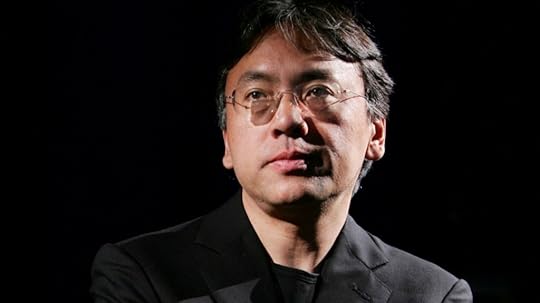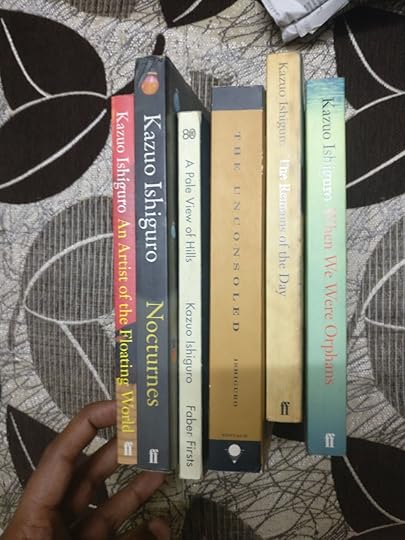Ich liebe Ish

The phrase ‘Ich liebe Ish’ translates from German to ‘I love Ish’. Salman Rushdie fondly refers to the man of the moment, Kazuo Ishiguro, as “Ish”. This is, then, a love letter to an author whose body of work I admire greatly and who just received the 2017 Nobel prize for literature.
When he found out about the recognition, the 62 year old author said he thought, “I am too young for this,” before realizing that he was actually somewhere in the middle of the pack, age-wise. He was caught off guard when he found out about becoming a laureate, as I believe most are. But unlike Dylan last year, who acknowledged the award weeks later, he was gracious. This kind of freshness is, in part, what makes his writing such a pleasure to read.
Being a true lover of fiction, I am glad that the Nobel Prize committee has awarded a fiction writer. After the last year’s award to Dylan, this is a welcome relief. While authors push the boundaries of literature and ensure that it keeps evolving, it seemed to me that the committee had taken it upon themselves to disrupt the definition of literature. I love Dylan’s songs, but I am sure a part of the reason for his delayed acknowledgment was his inability to keep pace with how the times they are a-changin’. For someone who told the world that very thing, little should be surprising. So you can imagine my shock.
Coming back to Ishiguro, I’ve been following him ever since I picked up Never Let Me Go more than a decade ago. He came across as an unjaded and uncomplicated writer, who speaks his richer-than-normal mind with an impressive fluidity. His writings call out to a part in each one of us whose existence we often don’t want to acknowledge. His characters struggle with their interpretation of historical events and their involvement in those. Their inability or fear of confronting the truth impedes an honest introspection. They take a trip down the memory lane which is either blocked off and needs to be reopened or is rendered unreliable with the passage of time. They start out by feeling secure in their beliefs to later discover that they are not as infallible as they imagined. He’s one of the finest writers who explore the idea of an unreliable narrator owing to his mastery over the subtlety the subject requires. Each one of his books is a feat in itself and that is probably why it takes him four years, on an average, to write one.
It’s a very human failing, one that I’ve also been guilty of. Reading him makes me aware of that failing and makes me want to introspect objectively. It forces me to break my defences to reach that gnawing truth. He makes me believe that it’s both easier to do and to digest while it’s still recent. It saves one from building the skyscraper of their lives on a weak foundation which might collapse when it gets older.
 Someone took my copy of Never Let Me Go. I hope they cherish it.
Someone took my copy of Never Let Me Go. I hope they cherish it.Another thing about Ishiguro’s writings is that his evolution as a writer is noticeable. The promise of the little known author of ‘A Pale View of Hills’ in 1982 was evident. But then with ‘An Artist of the Floating World’ in 1986, he took the unreliable narrator concept to a whole another height. ‘The Remains of the Day’ published in 1989 is, to me, the pinnacle of his achievement on the concept. His later books, ‘When We Were Orphans’ (2000) and ‘Never Let Me Go’ (2005) are slightly different, with the protagonists searching for their past and origins. The beauty of ‘Never Let Me Go’ is how organically he extended the same idea to the realm of science fiction, declaring his authentic literary capability to world. People might start reading his works now and I would recommend reading his books chronologically. It’s the best way to read them. It’s not easy to keep improving when you start with near-perfection but he has done exactly that.
There was a seed of worry in my mind when I learned the news: does the award mean that the experts have declared that there’s no room for further improvement for Ishiguro? But on reading his acknowledgement interview, the fear vanished. He called it out himself when he said, “I hope it doesn’t mark some kind of end.” That’s all the assurance that I needed to be safe in my belief that the literary world will continue to be enriched by his writing. He’ll keeping pushing his boundaries as a writer which would, most definitely, lead to evolution of literature itself.




